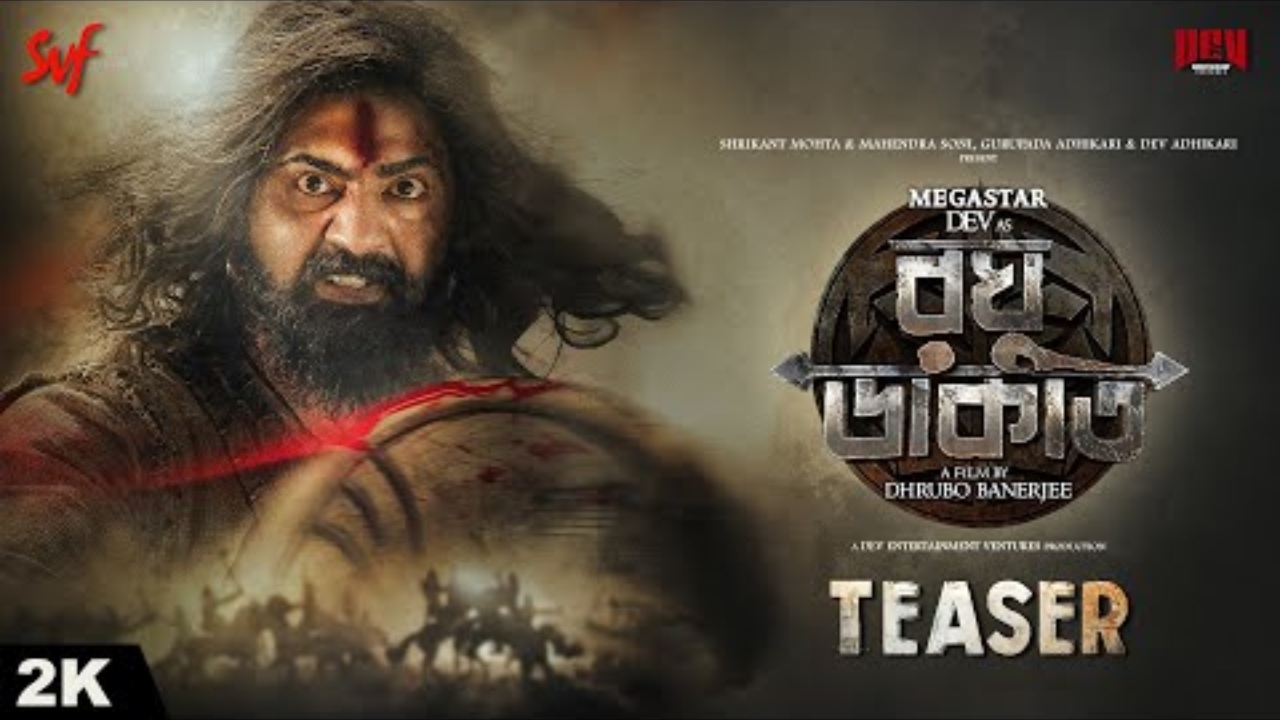Dhrubo Banerjee’s Raghu Dakat teaser erupts and pierces you. Clocking in just below the two-minute mark, this very thunderclap is cinematic, shaking off the dust of Bengal’s forgotten rebellions, which breathe fire on the legend of a man who dared to defy an empire. At its centre stands Dev, whose intensity piercing through the screen is so great it feels like he is staring into your soul.
This isn’t the Dev we once knew. It is Raghu — the myth, the rebel, the clawed hand of divine vengeance. As soon as he makes his entrance, with eyes burning and voice dripping rage, it gets evident that he is not merely acting; he is inhabiting the space of something way bigger. Whether it be amidst the flames or charging straight into battle, that rage refuses to be assimilated. It’s magnetic, it’s chilling, and it sets the tone for everything that follows.
In the very first sight, it strikes the awesomeness behind the curtain of Bengal, bloodied by colonial tyranny, and it is blood, fire, and thunder. But perhaps, this is no dry historical account. The rawness of operatic drama engulfs every frame with emotion: it is in the almost muffled cry of desolation from those with no voice, and it is in the enraged outcry of rebellion. The cinematography by Soumik Halder is a triumph, balancing magnificence with grit. Shadows become eyewitnesses; flames echo like an omen.
The ensemble cast, even in their brief appearances, leave their mark. Anirban Bhattacharya’s Ahindra Barman oozes cold calculation. It is the storm before the storm, clad in rudraksh and fury. Sohini Sarkar’s metamorphosis into a fierce Gunja is compelling, while Idhika Paul’s Saudamini provides a softer counterpoint, teasing a far more intimate battle ahead for Raghu.
And then there is the music. Rathijit Bhattacharjee and Nilayan Chatterjee unleash their music without any bounds. The score is urgent, thunderous; it is less a soundtrack and more of a war cry. It swells with rebellion, echoing the heartbeat of a people pushed to the edge.
What the teaser also lets us in on is that Raghu Dakat is much bigger than an individual’s battle: it is the awakening of the nation’s very soul. It’s about resistance not as an act, but as a legacy.
As the final moments hit, with Dev’s Raghu delivering a spine-chilling warning to the colonisers, you’re left not just stirred, but scorched. This Puja, rebellion wears a new face. And his name is Raghu.

